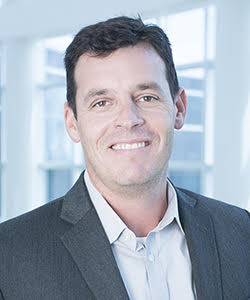Course Series: Demystifying Academic Publishing
Registration Open
Courses and Dates:
Course 1: Understanding the Academic Writing Genre
August 16 – September 3, 2021
Course 2: Publishing in Academic Journals & Proceedings
September 6 – 24, 2021
Course 3: Publishing for the General Public
October 11-22, 2021
Each course is spread over 3 weeks covering 12-15 hours of content so that learners have a chance to write, review, and revise manuscripts.
Accessible *
* Effective * Interactive * Self-paced
* Affordable ( $35/course. Each course can be taken independently )
Course Series Description
 Academic publishing is essential to identifying, documenting, and disseminating research, theory, and practice, while simultaneously serving as a mechanism to support discourse around key historical, contemporary, and future topics and issues. However, navigating this world can be daunting, particularly for new and emerging scholars. They must learn to effectively embed work in existing research, theory, and practice, while communicating meaning and implications to diverse audiences.
Academic publishing is essential to identifying, documenting, and disseminating research, theory, and practice, while simultaneously serving as a mechanism to support discourse around key historical, contemporary, and future topics and issues. However, navigating this world can be daunting, particularly for new and emerging scholars. They must learn to effectively embed work in existing research, theory, and practice, while communicating meaning and implications to diverse audiences.
The purpose of these 3 courses is to provide new and emerging scholars with guidance related to the myriad of nuances and issues related to academic publishing in diverse disciplines and venues.
Course #1: Understanding the Academic Writing Genre
Description: The purpose of this course is to provide new and emerging scholars with guidance related to the myriad of nuances and issues related to academic publishing in diverse disciplines and venues.
Course #2: Publishing in Academic Journals & Proceedings
Description: The purpose of this course is to help learners align their content to specific journals or conference proceedings requirements. This will include discussions of resources, tips, and tricks for publishing, as well as content that all editors wish authors knew. Where the first course focuses on shorter papers, the goal of this course is to focus on full-length original manuscript submissions (empirical or theoretical syntheses).
Course #3: Publishing for the General Public
Description: The purpose of this course is to help learners understand and appreciate communicating academic publishing information to non-academic audiences. This will include, but not be limited to, discussions of open access options, self publishing, predatory journals, developing story headlines, talking with the press, article repositories (e.g. ResearchGate), citations (e.g., Google Scholar), and the use of social media.
Learning Environment:
Course activities will vary from week-to-week (and course-to-course) and will include, but are not limited to 1) narrated presentations, 2) online videos, 3) collections of journal articles and conference proceedings, 4) sample sections from selected academic papers, 5) discussion forum prompts, 6) peer review forms and more.
Community-Building:
In addition to the previously mentioned learning activities, peer reviews, discussion forums, and resources sharing sites (i.e., Diigo) will be used to facilitate interaction between learners and community-building in the courses.
Course Overview:

- Week One: Course Introduction, Main Sections of Academic Papers, How to Write Convincing Arguments, Beginning Your Manuscript
- Week Two: Using Literature to Support Claims, How To Be A Good Reviewer, Continuing Manuscript Development, Peer Reviews
- Week Three: Differentiating Goals of Writing (e.g., empirical vs. theoretical), Finalizing Manuscript Development
Course Instructors

Richard Hartshorne
Richard Hartshorne is a Professor and Coordinator for the Instructional Design & Technology program and serves as the Chair of the Department of Learning Sciences and Educational Research at the University of Central Florida (UCF). He earned his Ph.D. in Curriculum and Instruction with a focus on educational technology production and technology and teacher education from the University of Florida. His teaching focuses on the integration of technology into the educational landscape, as well as instructional design and development. His research interests primarily involve the production and effective integration of instructional technology into the teaching and learning environment. The major areas of his research interest are rooted in technology and teacher education, the integration of emerging technology into the k-post-secondary curriculum, and online teaching and learning. He currently serves as the Editor-in-Chief of the Journal of Technology and Teacher Education, and his articles have appeared in such publications as the International Journal of Gaming and Computer-Mediated Simulations, the Journal of Digital Learning in Teacher Education, Internet and Higher Education, the Journal of Educational Computing Research, and others. He has authored numerous book chapters and serves in various editorial capacities for a number of journals in the field of educational technology.

Richard E. Ferdig
Richard E. Ferdig is the Summit Professor of Learning Technologies and Professor of Educational Technology at Kent State University. He works within the Research Center for Educational Technology and also the School of Teaching, Learning, and Curriculum Studies. He earned his Ph.D. in Educational Psychology from Michigan State University. He has served as researcher and instructor at Michigan State University, the University of Florida, the Wyzsza Szkola Pedagogiczna (Krakow, Poland), and the Università degli studi di Modena e Reggio Emilia (Italy). At Kent State University, his research, teaching, and service focus on combining cutting-edge technologies with current pedagogic theory to create innovative learning environments. His research interests include online education, educational games and simulations, the role of faith in technology, and what he labels a deeper psychology of technology. In addition to publishing and presenting nationally and internationally, Ferdig has also been funded to study the impact of emerging technologies such as K-12 Virtual Schools. Rick was the founding Editor-in-Chief of the International Journal of Gaming and Computer Mediated Simulations, is the past Editor-in-Chief of the Journal of Technology and Teacher Education, and also serves as a Consulting Editor for the Development Editorial Board of Educational Technology Research and Development.
If you need further information, please contact [email protected]